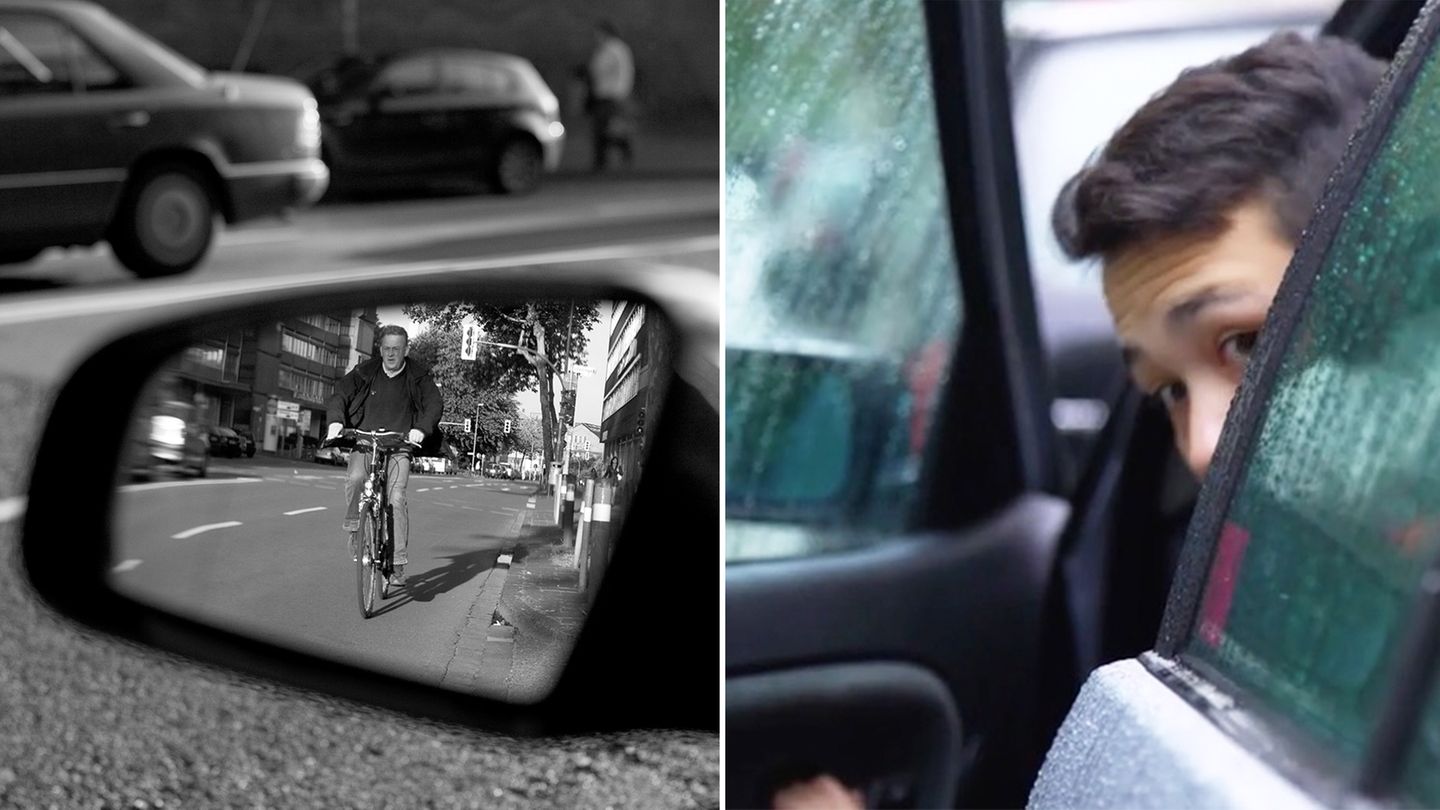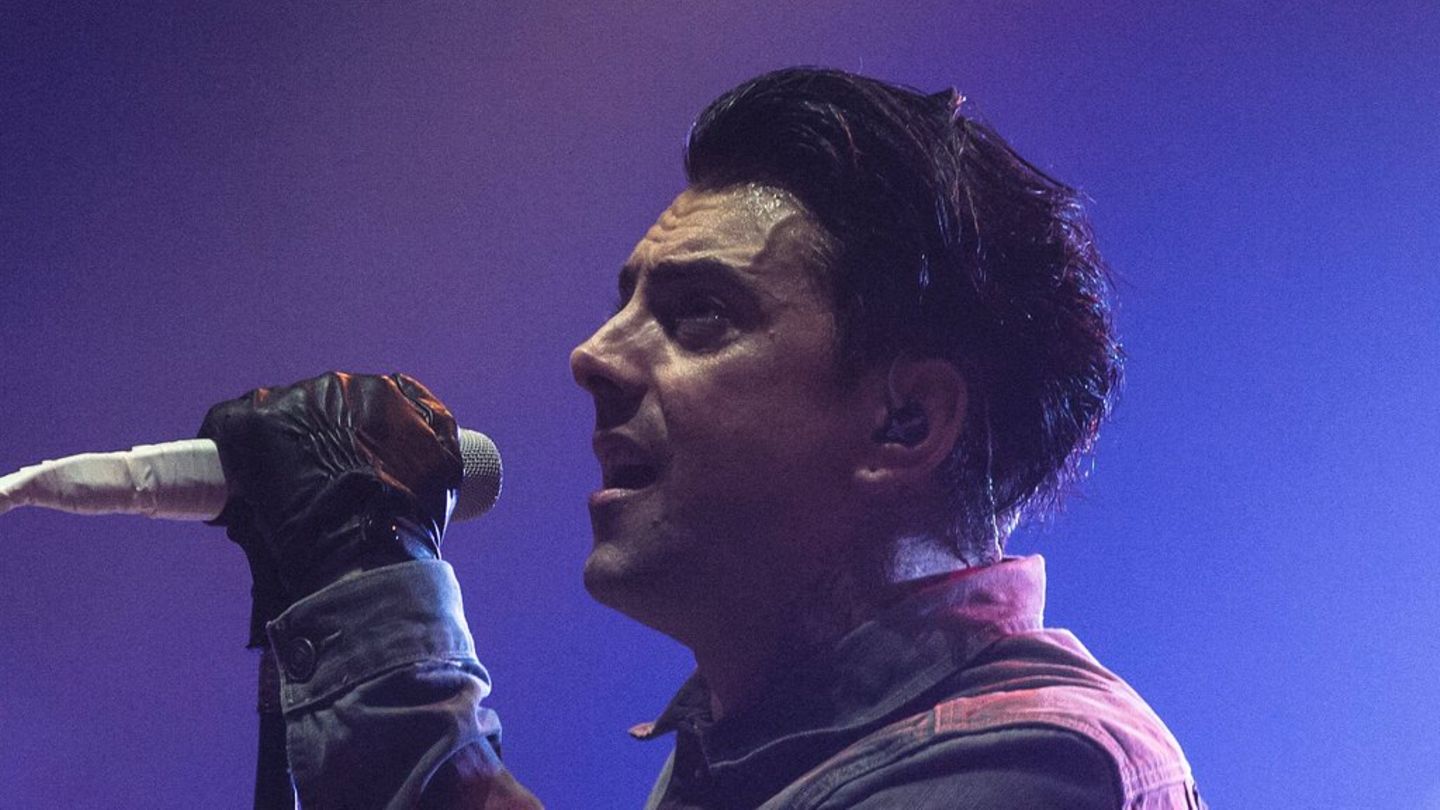The Federal Constitutional Court wants to make the traffic light weatherproof in the event that extremists gain the political upper hand. The Federal President supports her – a signal to the hesitant Union.
On the 75th anniversary of the Basic Law, Federal President Frank-Walter Steinmeier called on politicians and society to make a joint effort to defend democracy and its institutions. On Thursday in Berlin, he primarily advocated protecting the Federal Constitutional Court from possible attacks on its independence.
“We have to prevent an extremist minority from making our institutions dysfunctional,” said Steinmeier in a debate forum on democracy at his official residence, Bellevue Palace. All in all, what is needed is “the Democrats in this country joining forces.”
Steinmeier calls for “a serious debate”
With regard to Karlsruhe, the Federal President warned that in countries such as Poland and Hungary, the independence of the highest courts has always been at the center of attacks on liberal democracy. “That’s why I think it’s right to include regulations for the structure of the court, the electoral process and the terms of office of judges in the Basic Law. Regulations that could then only be changed with a two-thirds majority.”
Steinmeier said he does not underestimate the scope and complexity of such a regulation. “Nevertheless, in my opinion now is the time to think about the content and scope of such an amendment to the constitution. It would be good if a serious debate got underway about it.”
The traffic light parties want to bring about a change in the Basic Law with the Union in order to anchor the points raised by Steinmeier. This is intended to prevent judges from being removed from office relatively easily if extreme parties gain strength.
Protection from extremists is needed
However, the Union ended the initial discussions with the declaration that it currently sees no compelling need for such a constitutional change. Meanwhile, CDU chairman Friedrich Merz made it clear that the Union would of course be open to a discussion if there were proposals to better protect the Federal Constitutional Court from enemies of democracy. At the moment, the Union does not see such proposals.
Steinmeier emphasized that democracy must be better protected from extremists. The Basic Law and criminal law provide the necessary instruments. Incitement, calls for violence and violent attempts to destroy the free order must not be tolerated; anti-constitutional organizations could be banned. “Above all, we must find ways and means to take action against networks that feed, finance and spread unconstitutional ideas.”
It is also necessary to make the digital debate suitable for democracy. Social media increasingly dominated the political debate, painted black and white and fueled radical positions. “We must not allow a minority of vocal extremists to dominate the issues and the political climate in the country, to deliberately spread lies, to incite hatred and to be downright brainwashed by enemies of democracy from all over the world.”
Demand for an earlier opportunity to vote
The forum also discussed lowering the federal voting age from 18 to 16. This would require a change to the Basic Law, but the CDU and CSU do not want to take part. All studies show that 16 and 17 year olds are capable of making responsible voting decisions, said Robert Vehrkamp from the Bertelsmann Foundation. “And that’s why there’s basically no longer any real argument against it.”
The climate activist Luisa Neubauer from Fridays for Future Germany also justified the call for an earlier opportunity for young people to vote by saying that today’s political decisions are increasingly influencing their future lives. “More and more consistency in political decision-making is being postponed into the future.” In contrast, the CDU member of the Bundestag Christoph Ploß found that the age of majority was “exactly the right limit” for the federal voting age.
Source: Stern
I have been working in the news industry for over 6 years, first as a reporter and now as an editor. I have covered politics extensively, and my work has appeared in major newspapers and online news outlets around the world. In addition to my writing, I also contribute regularly to 24 Hours World.




